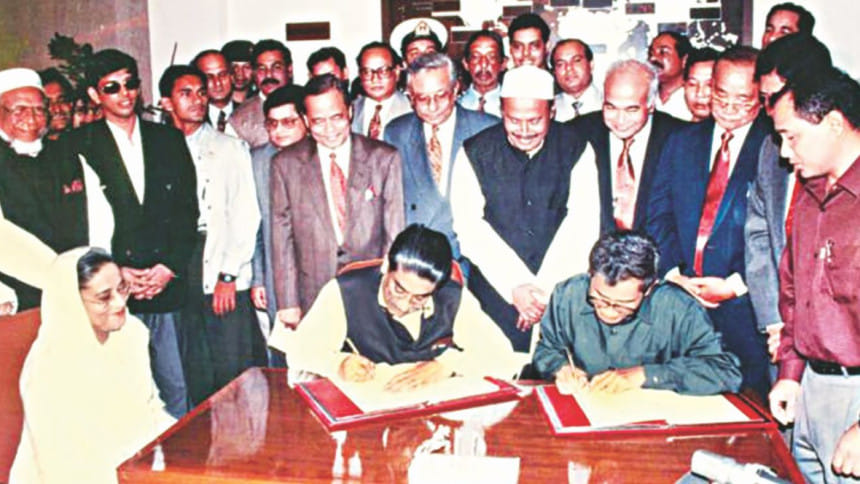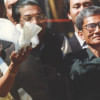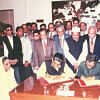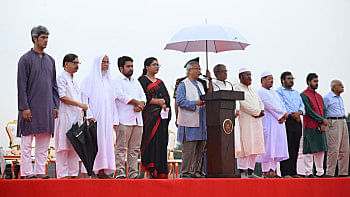20 years of the elusive CHT Accord

The Chittagong Hill Tracts Accord (CHT Accord), signed in 1997 with the promise to end armed conflict and grant a host of benefits to the indigenous Jumma people in the south-eastern region of Bangladesh, has rather increased tension in the last 20 years. The accord had ended a decade-long conflict between the Jumma people and the government of Bangladesh. After it was signed, it was hailed by not only the indigenous people and democratic and progressive forces in the country, but also the United Nations, European Union and many democratic governments of the world as well as national and international organisations.
Unfortunately, even after two decades, the accord has yet to bear fruit, while the sufferings, subordination, and exploitation of the Jumma people continue unabated. The region is still unstable and there is growing resentment due to the delay in fully implementing the accord. That failure has also led to the continuing sufferings of the internally displaced families and India-returned refugees of the Jumma—who were victims of the atrocities and conflicts in the 1980s and 90s. Ironically, in the 20 years since the CHT Accord, many scholars have done their PhD on it but the agreement remains unimplemented to this day.
The main objectives of the 1997 peace accord included protection of the land rights of the indigenous people, revival of their cultural uniqueness, rehabilitation of internally displaced people and refugees who had left the country, withdrawal of the military from the CHT (with the exception of permanent military establishments), and self-government through regional and district councils. The signing of the accord was an important achievement for the then Awami League government and the indigenous representatives of the Parbatiya Chattagram Jana Samhiti Samiti (PCJSS). The accord greatly enhanced Sheikh Hasina's image internationally, and she was awarded the United Nations Educational, Scientific, and Cultural Organization's (UNESCO) Peace Prize in 1999. But it failed to change the life of the people who had fought and shed their blood to make it happen in the first place.
The fact is, political instability and the lack of a firm political commitment have crippled the accord. The costs of failure are high: disruptive activities, armed warfare, violations of human rights, losses of lives and resources, exposing the border regions to external threats—all of which will continue if lasting peace is not achieved. The failure also resulted in serious consequences for the indigenous people: intra-group rivalry and conflicts, fragmentation within the communities, a dwindling economy and stagnating social and human development due to the poor healthcare and education sectors.
The accord comprises four parts—General; Hill District Local Government Council; the Chittagong Hill Tracts Regional Council; and Rehabilitation, General Amnesty, and Other Issues. It was implemented to some extent in the first couple of years, with the demobilisation of PCJSS, repatriation of Jumma refugees, enactment of the three revised Hill District Council Acts and Regional Council Act, establishment of CHT Affairs Ministry and so on. But a number of key provisions, such as the withdrawal of temporary military camps, resolution of land conflicts, and making the hill district councils and the regional council functional, remain unimplemented.
Moreover, there is an increasing Bangali Muslim population in the region, in contrast to a declining trend for the Jumma population. Ushatan Talukdar, in a paper presented at the International Conference on Civil Society, Human Rights, and Minorities in Bangladesh, held in Kolkata in 2005, mentioned that the Bangali Muslim population, which was around two percent of the total population of the CHT in 1947, rose to 49 percent in 2003. On the other hand, the Jumma, who comprised 98 percent of the total population of the hill tracts in 1947, declined to 51 percent in 2003. The Jumma people seem destined to become a minority in their own land if the present trend continues.
The official figures, however, are widely seen in the CHT as being politically motivated and manipulated. Indigenous sources put the Bangali Muslim settler figure at more than 65 percent. It is alleged that the Bangali settlers frequently grab land by force, sometimes with the tacit consent and connivance of the local administration and sometimes by luring illiterate indigenous people and forging documents. The eviction of the indigenous people and land grabbing by the Bangali settlers, in collusion with government officials, are clearly visible in the hill tracts.
In these 20 years, Bangladesh government has undertaken different elusive development projects to evict the indigenous people from their ancestral land. Tourism, for example, is being used to force the Jumma people to leave and to grab their land in the name of development. Settlers have also replaced many Chakma-Marma names of places with Bangali and Muslim names.
The signing of the peace accord had rekindled hope among the Jumma people that they would be able to live in peace and dignity. That desire did not materialise in the last 20 years, as the state failed to implement most of the provisions of the accord. As a consequence, the indigenous people became divided and resumed revolutionary activities. The conflict between the government and the people grew again.
The government of Bangladesh needs to implement the accord fully, and all promised institutions should be established and function properly. It is true that the accord was able to bring peace in hill tracts for some time, but without these elements of a comprehensive solution, the prospects for regional security, stability, and trust between the settlers and the indigenous people will remain distant, and there will never be an end to the violent conflicts in the CHT. It's time to end the waiting and implement the unimplemented conditions of the accord.
John Tripura is associated with the Indigenous Peoples Human Rights Defender.
E-mail: [email protected]









Comments